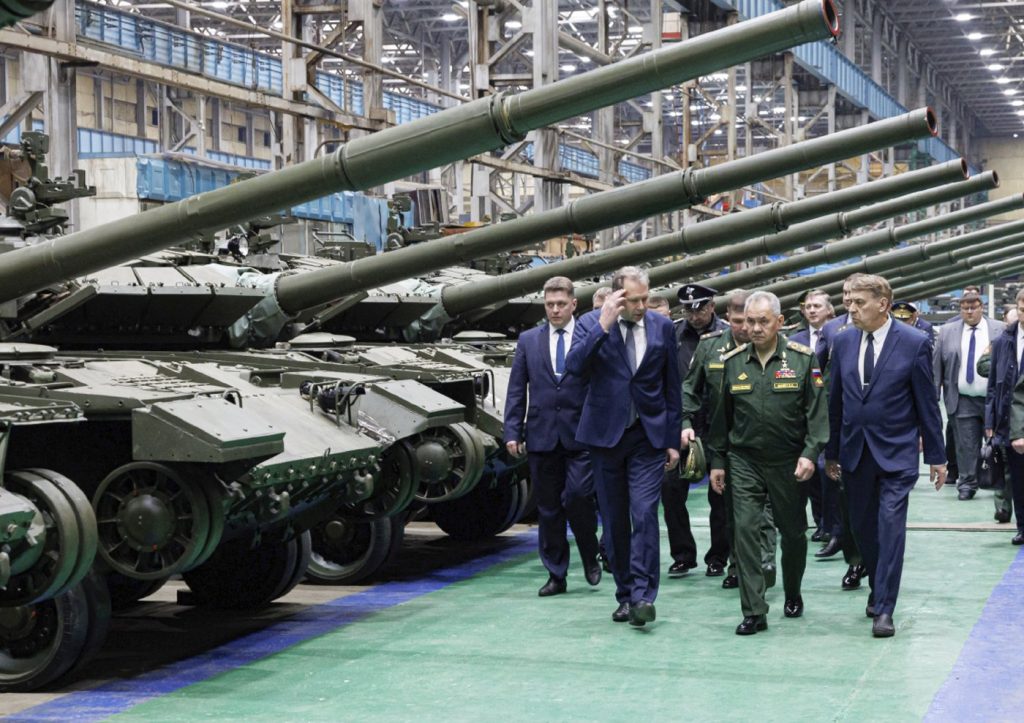In the wake of the 2022 invasion of Ukraine, hundreds of foreign companies, including major U.S. corporations such as Coca-Cola, Nike, Starbucks, ExxonMobil, and Ford Motor Co., exited Russia. Recent developments, however, suggest a possibility that trade relations between the U.S. and Russia could be restored if a peace settlement is reached. Former President Donald Trump has indicated interest in reviving U.S.-Russia trade, while Russian President Vladimir Putin has hinted that foreign companies might return under certain conditions.
Trump stated, “Russia wants to do large-scale TRADE with the United States when this catastrophic ‘bloodbath’ is over, and I agree,” highlighting the potential for job creation and wealth in Russia. However, following a series of drone and missile attacks in Kyiv, Trump criticized Putin, claiming he "has gone absolutely crazy" and promised new sanctions, indicating that the prospect of U.S. companies returning to Russia may not be as straightforward as initially thought.
The business environment in Russia has undergone significant changes since 2022, none of which are favorable to foreign companies. There are considerable risks involved, including the classification of Ukraine's allies as "unfriendly states," which imposes severe restrictions on businesses from over 50 nations, limiting their ability to withdraw profits and allowing the Russian government to seize control of essential companies. This climate has made many foreign businesses skeptical about re-entry into the market.
Companies that exited Russia often had to sell their assets at a fraction of their worth, while Kremlin-aligned business groups purchased these assets at discounted rates. A 2023 presidential decree allowed the Russian government to take control of companies like Fortum, Unipro, Danone, and Carlsberg. Should a peace deal remove the U.S. from the "unfriendly" list, the memory of previous losses will still linger, and the possibility of reinstating favorable business conditions appears slim.
Experts suggest that the changes enacted by the Russian government have inflicted long-term damage on its business environment. Chris Weafer, CEO of Macro-Advisory Ltd., notes a lack of specific evidence that any foreign companies are prepared to return to Russia, indicating that discussions are primarily political. Elina Ribakova from the Bruegel research institute expresses skepticism about the chances of U.S. businesses returning, pointing out that the likelihood is "not very high."
Putin’s recent remarks about needing to “strangle” foreign tech firms such as Zoom and Microsoft, which halted their services in Russia, further illustrate the country's antagonistic stance towards former partners. Putin underscored a desire to support domestic tech companies and assured that Moscow would assist local businesses against foreign entities attempting to reclaim their previous stakes, such as McDonald's, which has stepped back from the Russian market.
Adding to the difficulties, Russia’s economy is projected to stagnate due to a lack of investment outside the military sector. Economists note that Russia faces one of the lowest long-term growth rates and highest levels of country risk globally. Most profitable ventures currently relate to military production, an area U.S. companies are unlikely to engage with due to ethical concerns.
Some exiting companies, like Renault and Ford, have left behind repurchase agreements that may allow them to buy back their stakes in the future. However, the unpredictable legal environment in Russia raises questions about the feasibility of these agreements being honored.
Despite the exit of many foreign firms, a significant number continue to operate in Russia, particularly those from China and other non-allied nations. According to the Kyiv School of Economics, 2,329 foreign companies remain active, while 1,344 are in the process of leaving, and 494 have exited entirely. Additionally, while U.S. sanctions are considered stringent, the European Union continues to impose new sanctions, complicating the prospect of any potential re-engagement by businesses seeking to operate in Europe.











